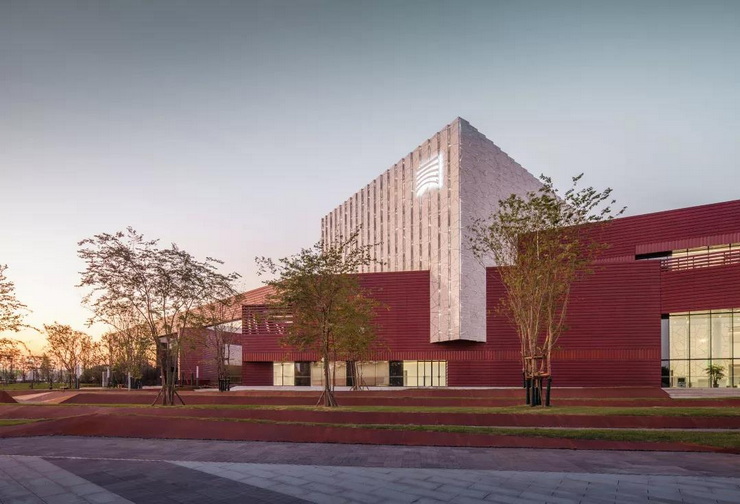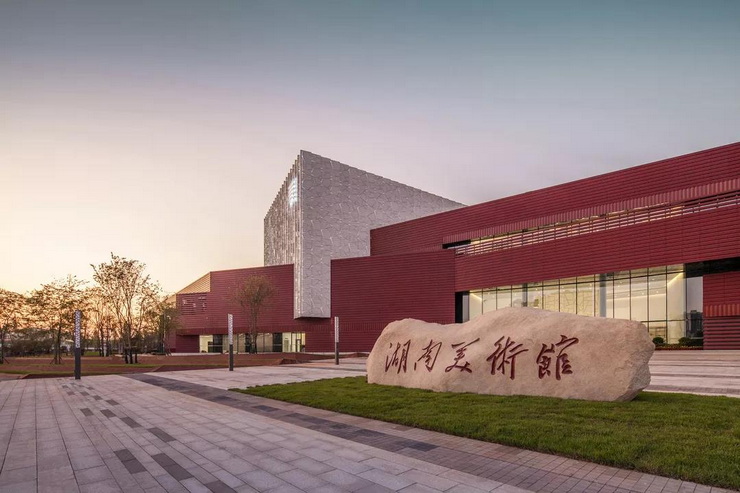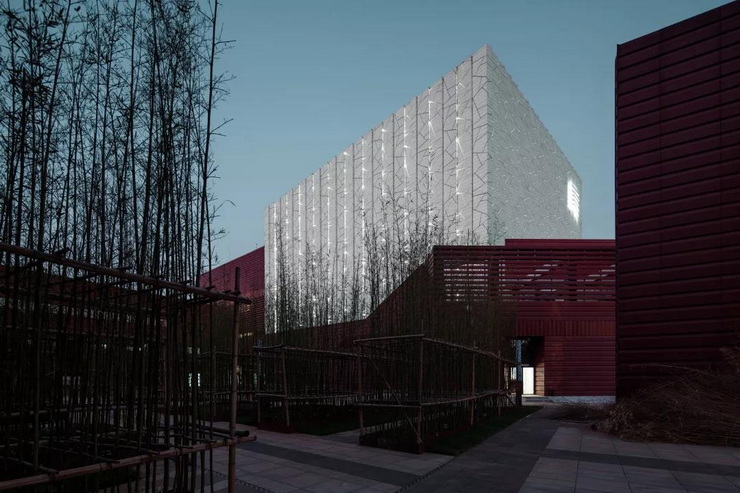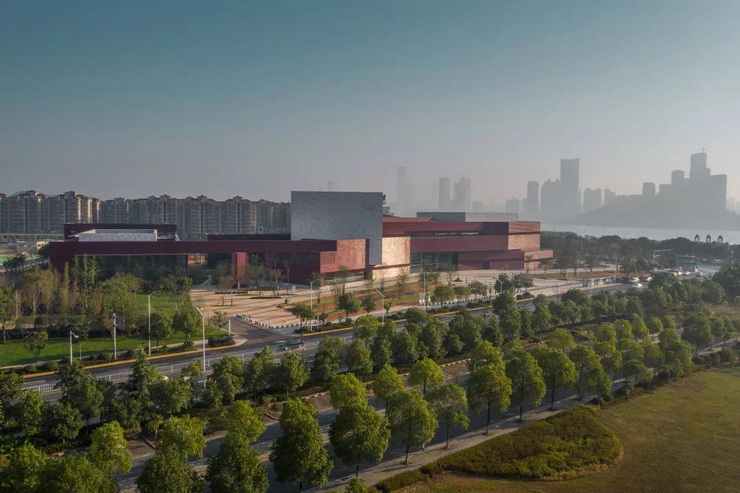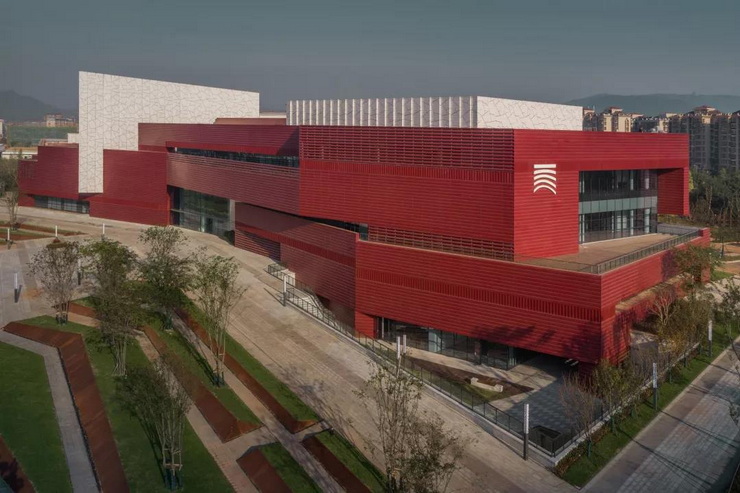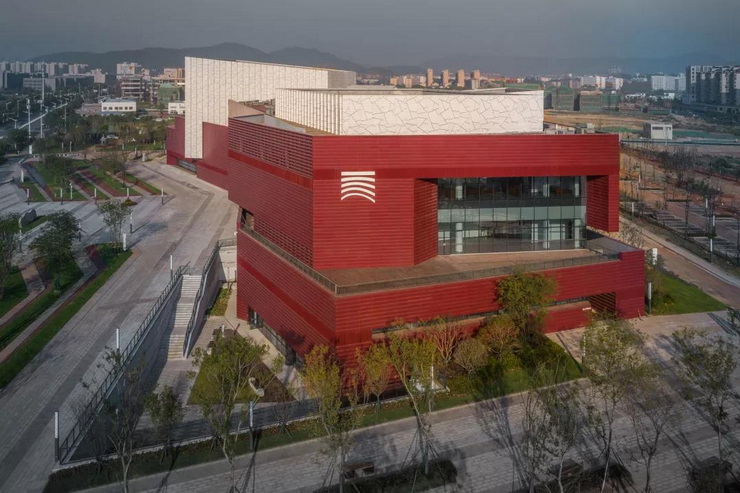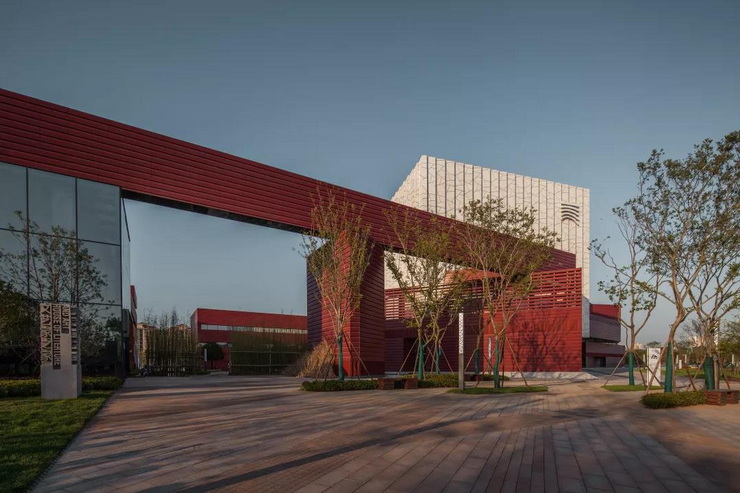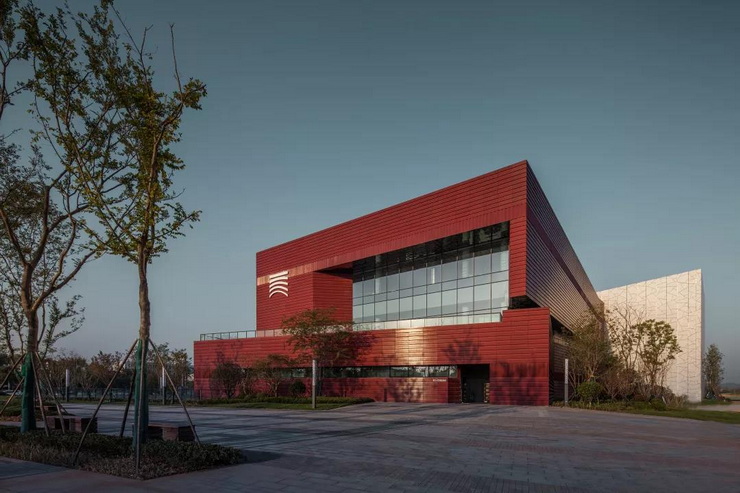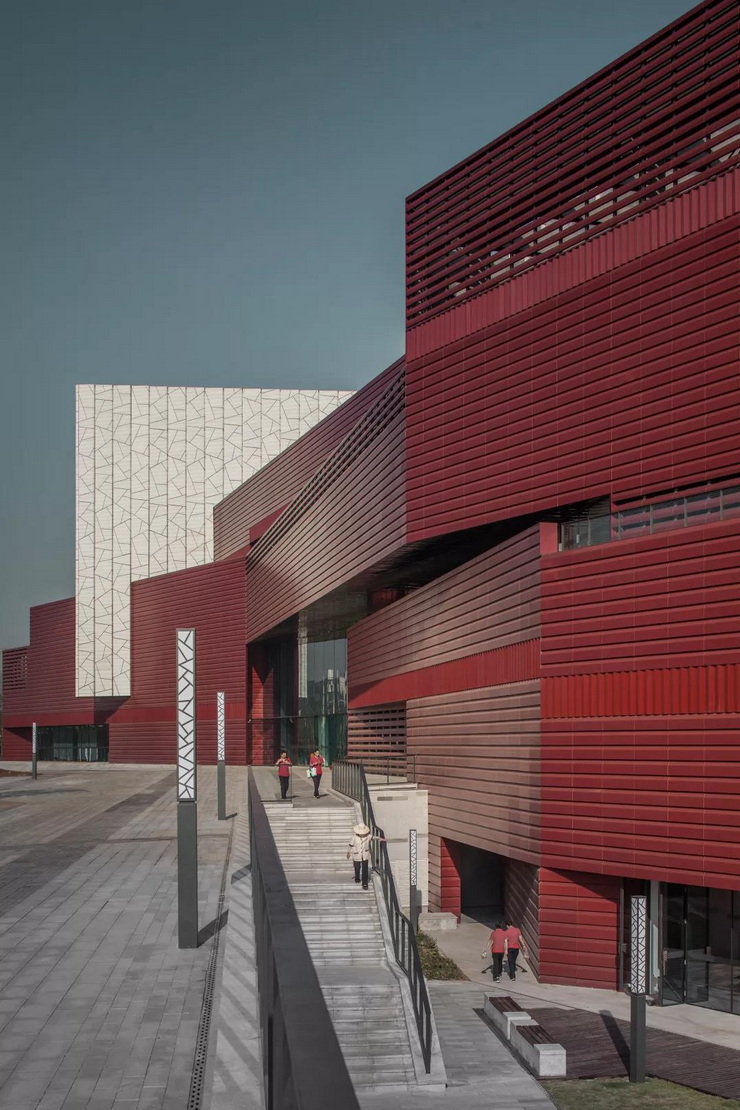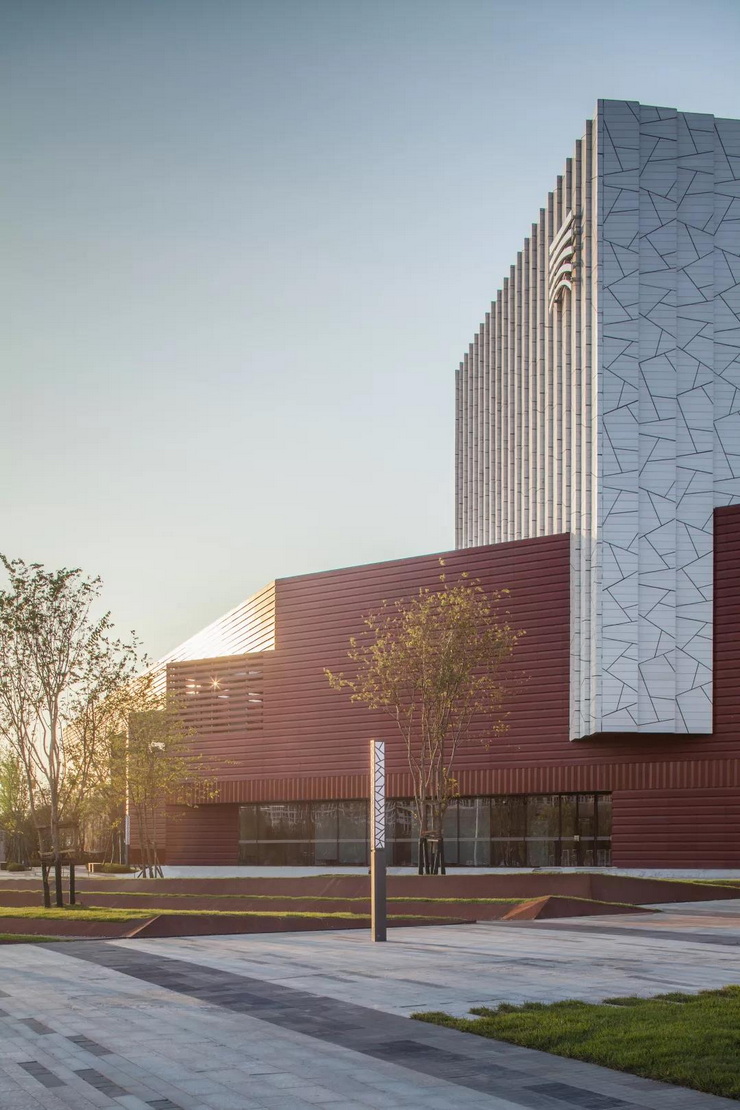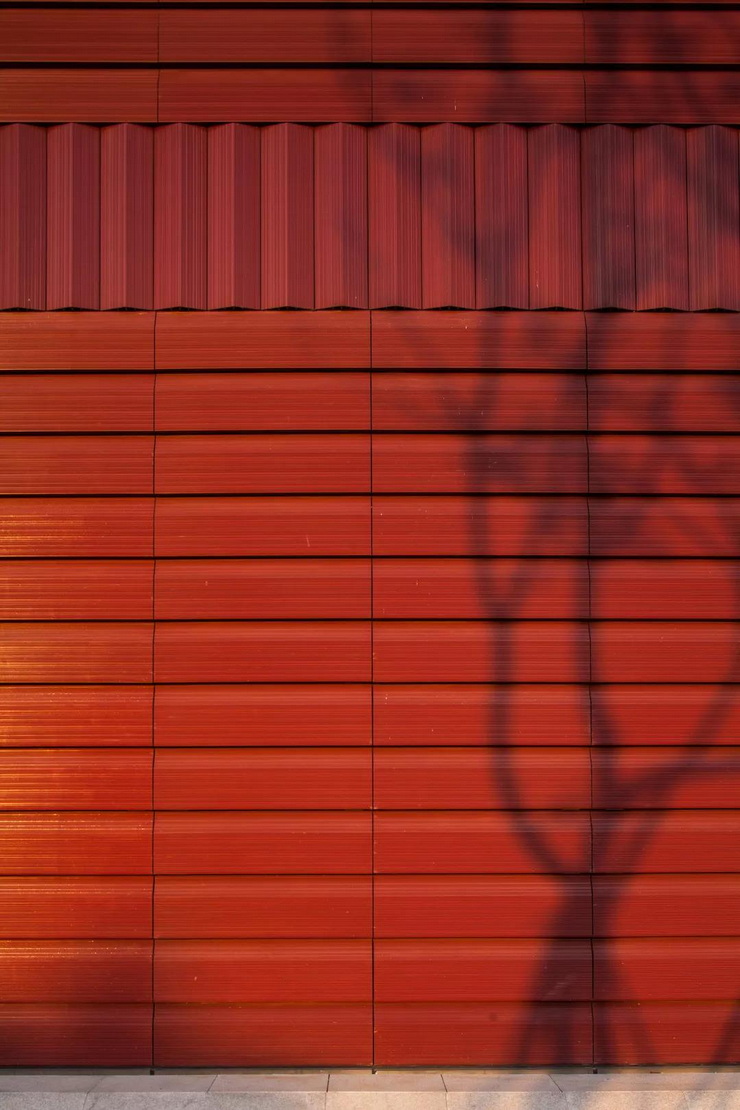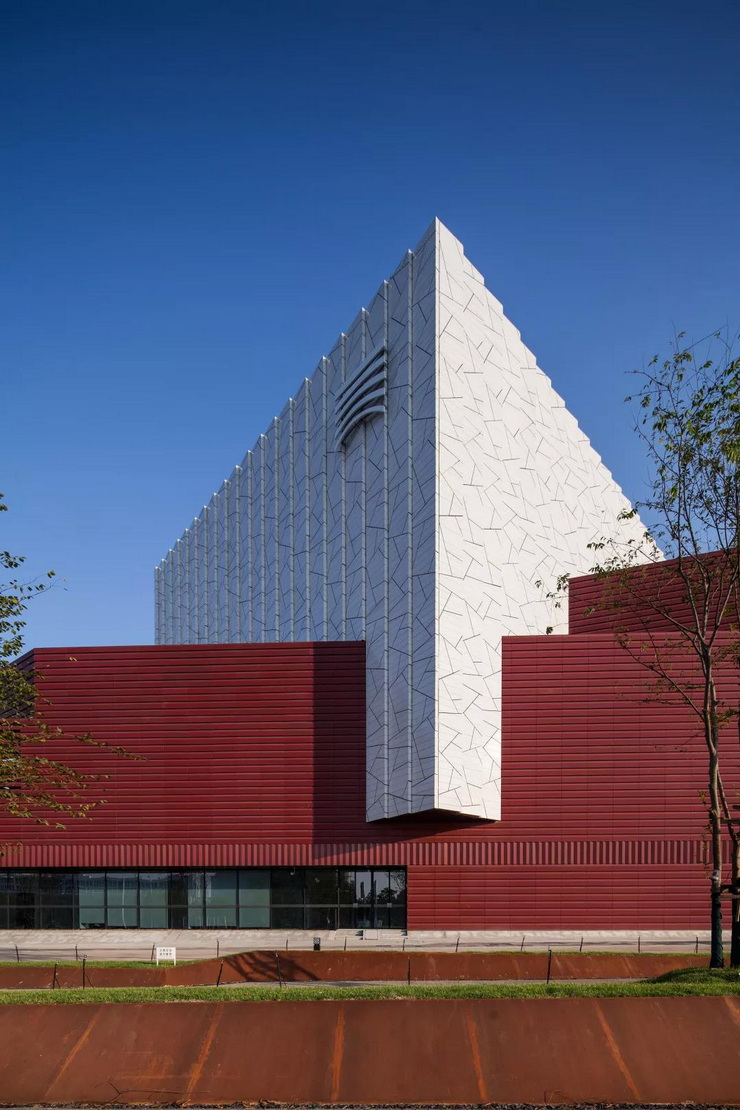Glazed Terracotta panel with art
China’s glazed pottery culture has a long history. The project design team applied this material rich in Chinese charm to the exterior of the building, giving the museum a strong artistic and humanistic atmosphere.
Terracotta panel is a cross-grain plate with a trapezoidal cross-section that has been fired after many tests and comparisons. It has the advantages of environmental protection, energy saving, moisture resistance, sound insulation, ventilation and other performance advantages, and the special luster of the glaze can better express the cultural connotation of the building.
The large-scale red glazed terracotta panel used in the project are printed with horizontal texture, which coincides with the free and easy brushstrokes of brush writing, so that the building facade expands horizontally. The stacked trapezoidal wedges form changing light and shadow under the sunlight, making the facade more obvious. The white block in the high place looks like a vertical folded form of calligraphy and painting rice paper from a distance, and close to the texture of the glazed surface with fine hidden ice cracks. The glazed surface reflects the surrounding rich colors, making the white block color changeable and deep, and interlaced with the red lines, forming a fusion carrier of virtual reality, rigidity and softness, and yin and yang of the building.
The design forms a restrained retreat with the city in the planning of the architectural interface. Continuous horizontal fold lines enclose a multi-directional three-dimensional space, and the architectural form is slowly gathered into a whole. between the blocks and inside.
The mutual staggering of the blocks naturally forms multiple semi-enclosed courtyards, taking into account outdoor exhibitions and leisure activities. The multi-storey roof garden on the east is an excellent place to rest and think. From here, the view is breathtaking. These open spaces interact with the outside space, bringing visitors a close and diverse feeling of the place.
We tried to bring this typical color temperament into the facade image of the building. The whole building is like vermilion printed sand, standing by the river.
In the design, we focused on the visual impact of the shadows generated by the scattered blocks on the overall building, and made the relationship between the blocks appear smooth and powerful with the help of changes in sunlight.
The red glazed terracotta panel used in a large area produces a wonderful color effect in the light and shadow through the advance and retreat relationship and the gap between the virtual and the real.
The glazed surface is subject to the influence of sunlight, and the red pottery panel surface presents a rich transition of warm colors, and even the texture of the facade will be different with the change of light. In the inspection of the march, she brings a kind of shocking spiritual feeling like flowing.
The white block in the high place looks like a vertical folded form of calligraphy and painting rice paper from a distance, and close to the texture of the glazed surface with fine hidden ice cracks.
The glazed surface reflects the surrounding rich colors, making the white block color changeable and deep, and interlaced with the red lines, forming a fusion carrier of virtual reality, rigidity and softness, and yin and yang of the building.
